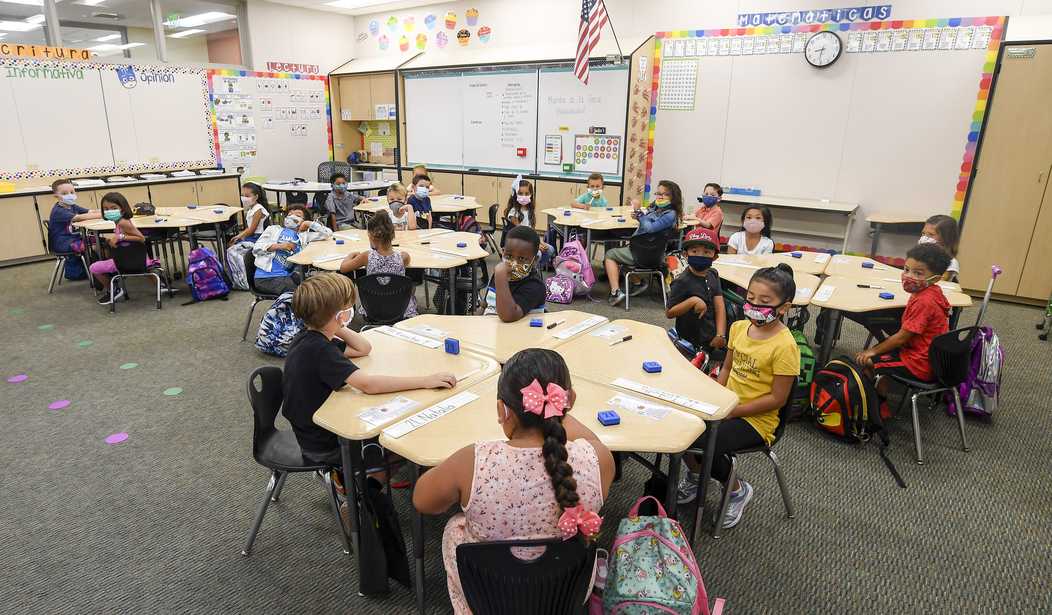I have to confess, as a parent and grandparent in a "blue" state once renowned for its education system, I spend a lot more time focusing on how public education is failing - because here in Minnesota, it is.
But there is some good news out there. Unless you're a blue state education administrator or union leader.
Here in MInnesota, "Mississippi" was the punch line of a lot of smug joking about what would happen if taxpayers didn't cough up even more for education.
Well, the the taxes rose and the money got spent - but as Minnesota's once-vaunted public education system slides toward the middle of the pack, Mississippi has surged ahead:
wrote today about how even if you've heard of Mississippi's surge in reading scores, you're probably underestimating it: pic.twitter.com/BlpueB1ARj
— Kelsey Piper (@KelseyTuoc) September 25, 2025
And the results have been fairly astonishing:
In a surprising turnaround, Mississippi, once ranked near the bottom of U.S. education standings, has dramatically improved its student literacy rates.
As of 2023, the state ranks among the top 20 for fourth grade reading, a significant leap from its 49th-place ranking in 2013. This transformation was driven by evidence-based policy reforms focused on early literacy and teacher development.
The rest of the country might want to take note.
That’s because Mississippi’s success offers a proven solution to the reading literacy crisis facing many states – a clear road map for closing early literacy gaps and improving reading outcomes nationwide.
Not eveyrone's convinced - the LATimes TDS-addled columnist Michal Hiltzik has doubts:
Some statistical readings should have raised questions among the miracle claimants. One is that Mississippi’s Black and Hispanic fourth-graders still scored much lower than white children — and the gap had not changed over the 10 years of the new regime.
In fact, it widened to 28 percentage points in 2022 from 25 points in 2013. The same thing happened with Hispanic pupils, who fell short of white kids’ achievement by 22 points in 2022 versus 21 in 2013.
Which sounds bad, until you look at the numbers at "good", "progressive" schools in "blue" cities and see that things are as bad or worse.
Of course, like most "Miracles", it was mostly hard work, starting with getting serious about education policy in a society that's gone all in on some really transparently stupid ideas, like "whole word reading" - teaching kids to associated the shapes of words with the pictures of the things they describe:=
If it sounds stupid, well - if it walks like a D U C K...
For decades, reading instruction in American schools has been rooted in a flawed theory about how reading works, a theory that was debunked decades ago by cognitive scientists, yet remains deeply embedded in teaching practices and curriculum materials. As a result, the strategies that struggling readers use to get by — memorizing words, using context to guess words, skipping words they don't know — are the strategies that many beginning readers are taught in school. This makes it harder for many kids to learn how to read, and children who don't get off to a good start in reading find it difficult to ever master the process.2
A shocking number of kids in the United States can't read very well. A third of all fourth-graders can't read at a basic level, and most students are still not proficient readers by the time they finish high school.
The whole article is worth a read to help understand why this society has raised a generation of public school kids that not only have trouble reading, but genuinely don't seem to enjoy it.
LIke most "miracles", this one was rooted in a lot of hard work, starting with some serious policy-mongering:
The LBPA was based on a first-in-the-nation reading law in Florida that ended social promotion in 2002, paving the way for a suite of literacy policies that address and support student needs and empower educators and families for success. As a result of its focus on early literacy, Florida increased its NAEP fourth-grade reading scale score by 13 points, going from 214 in 2002 to 227 in 2015. That’s equivalent to an improvement of one-and-a-half grade levels.
Florida now ranks third in the nation, and Mississippi has moved from 49th to 21st, in fourth grade reading since 2013.
This progress would not have been possible without ending social promotion and implementing the so-called “third-grade gate.” That’s the policy where third graders who are not reading at grade level are retained so they can receive additional literacy support. That policy is only one of the 17 comprehensive early literacy principles that, when combined, have been proven to lead to improved outcomes. Admittedly, it’s probably the most controversial.
An illiterate society is a gullible society.
To some, that's a feature, not a bug.








